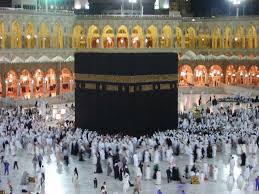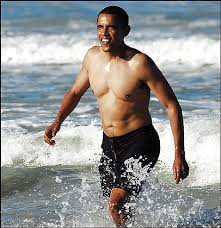 The Holy Basin contains well marked Christian and Muslim institutions and holy places that have had historical placement for millenniums. Although people of the Jewish faith had major presence in Jerusalem during the centuries of Biblical Jerusalem, which included rule by King Hezekiah and control by the Hasmonean dynasties, their control and presence were interrupted for two millennia. Extensive commentary has enabled the two thousand years of lack of control and presence to seem as if it never happened and that today is only a short interval from the ancient years of Hezekiah. Almost one thousand years of Christian and Crusader rule and more than one thousand years of Muslim rule are politely ignored, while their tremendous constructions and creation are not credited. Almost everything becomes nothing and a minor something becomes everything. Myth replaces reality. Spiritual quality replaces actual presence.
The Holy Basin contains well marked Christian and Muslim institutions and holy places that have had historical placement for millenniums. Although people of the Jewish faith had major presence in Jerusalem during the centuries of Biblical Jerusalem, which included rule by King Hezekiah and control by the Hasmonean dynasties, their control and presence were interrupted for two millennia. Extensive commentary has enabled the two thousand years of lack of control and presence to seem as if it never happened and that today is only a short interval from the ancient years of Hezekiah. Almost one thousand years of Christian and Crusader rule and more than one thousand years of Muslim rule are politely ignored, while their tremendous constructions and creation are not credited. Almost everything becomes nothing and a minor something becomes everything. Myth replaces reality. Spiritual quality replaces actual presence.
Some remains of Jewish dwellings and ritual baths can be found, but few if any major Jewish monuments, buildings or institutions from the Biblical era exist in the “Old City” of today’s Jerusalem. The often cited Western Wall is the supporting wall for Herod’s platform and is not directly related to the Second Temple. No remains of the Jewish Temple have been located in Jerusalem.
According to Karen Armstrong, in her book Jerusalem, Jews did not pray at the Western Wall until the Mamluks in the 15th century allowed them to move their congregations from a dangerous Mount of Olives and pray daily at the Wall. At that time she estimates that there may have been no more than 70 Jewish families in Jerusalem. After the Ottomans replaced the Mamluks, Suleiman the Magnificent issued a formal edict in the 16th century that permitted Jews to have a place of prayer at the Western Wall.
The only remaining major symbol of Jewish presence in Jerusalem’s Holy City is the Jewish quarter, which Israel cleared of Arabs and rebuilt after 1967. During its clearing operations, Israel demolished the Maghribi Quarter adjacent to the Western Wall, destroyed the al-Buraq Mosque and the Tomb of the Sheikh al-Afdhaliyyah, and displaced about 175 Arab families. Although the Jewish population in previous centuries comprised a large segment of the Old City (estimates have 7000 Jews during the mid-19th century), the Jews gradually left the Old City and migrated to new neighborhoods in West Jerusalem, leaving only about 2000 Jews in the Old City. Jordanian control after the 1948 war reduced the number to nil. By 2009, the population of the Jewish quarter in the Old City had grown to 3000, or nine percent of the Old City population. The Christian, Armenian and Muslim populations are the principal constituents and their quarters contain almost the entire Old City commerce.
In an attempt to attach ancient Israel to present day Jerusalem, Israeli authorities continue the attachment of spurious labels to Holy Basin landmarks, while claiming the falsification is due to the Byzantines, who got it all wrong.
King David’s Tower’s earliest remains were constructed several hundred years after the Bible dates David’s reign. It is a now an obvious Islamic minaret.
King David’s Citadel earliest remains are from the Hasmonean period (200 B.C.). The Citadel was entirely rebuilt by the Ottomans between 1537 and 1541 AD.
King David’s tomb, located in the Dormition Abbey, is a cloth-covered cenotaph (no remains) that honors King David. It has not been verified that the casket relates to David.
The Pools of Solomon, located in a village near Bethlehem, are considered to be part of a Roman construction during the reign of Herod the Great. The pools supplied water to an aqueduct that carried water to Bethlehem and to Jerusalem.
The Stables of Solomon, under the Temple Mount, are more likely a construction of vaults that King Herod built in order to extend the Temple Mount platform.
Absalom’s Tomb is an obvious Greek sculptured edifice and therefore cannot be the tomb of David’s son.
The City of David contains artifacts that date before and during king David’s time. Some archaeologists maintain there is an insufficient number of artifacts to conclude any Israelite presence before David. In any case any Israelite presence must have been in a small and unfortified settlement
The Jerusalem Archaeological Park within the Old City, together with the Davidson Exhibition and Virtual Reconstruction Center also tell the story. Promising to reveal much of a Hebrew civilization, the museums shed little light on its subject. The Davidson Center highlights a coin exhibition, Jerusalem bowls and stone vessels. The Archeological Park in the Old City contains among many artifacts, Herodian structures, ritual baths, a floor of an Umayyad palace, a Roman road, Ottoman gates, and the façade of what is termed Robinson’s arch, an assumed Herodian entryway to the Temple Mount. The exhibitions don’t reveal many, if any, ancient Hebrew structures or institutions of special significance.
Well known archaeologists, after examining excavations that contain pottery shards and buildings, concluded that finds don’t substantiate the biblical history of Jerusalem and its importance during the eras of a united Jewish kingdom under David and Solomon.
Margaret Steiner in an article titled “It’s Not There: Archaeology Proves a Negative” in the Biblical Archaeology Review, July/August, 1998, states:
…from the tenth century B.C.E. there is no archaeological evidence that many people actually lived in Jerusalem, only that it was some kind of public administrative center…We are left with nothing that indicates a city was here during their supposed reigns (of David and Solomon)…It seems unlikely, however, that this Jerusalem was the capital of a large state, the United monarchy, as described in Biblical texts.



















